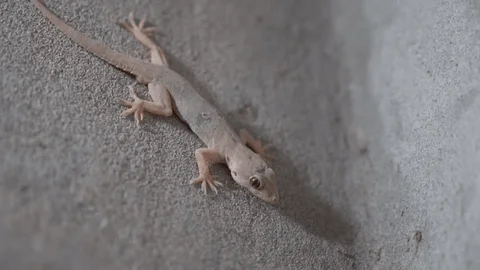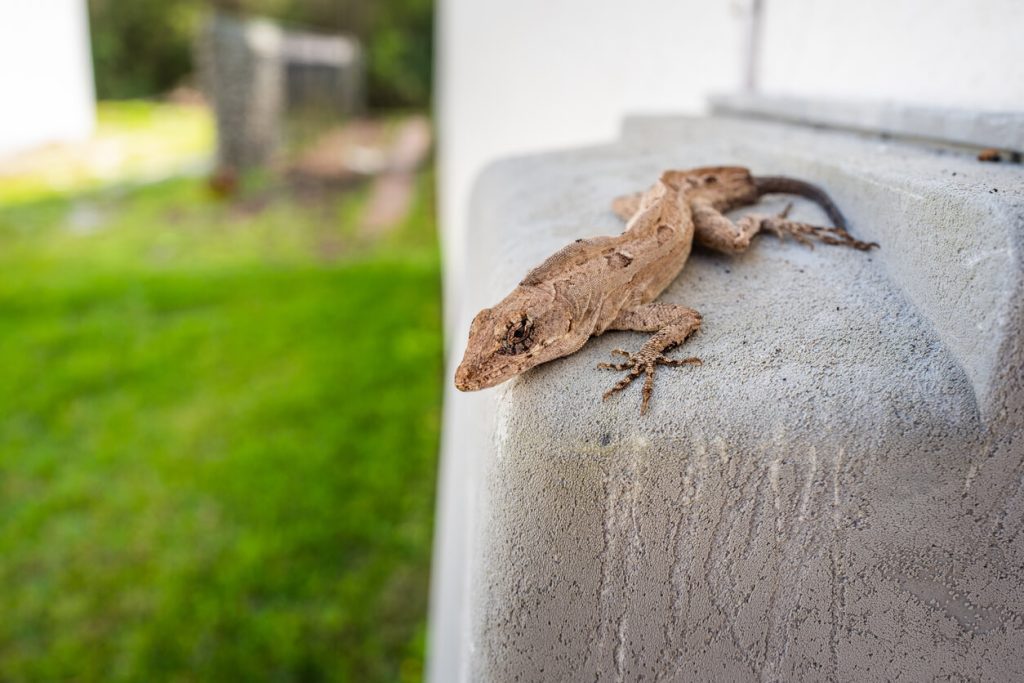Gecko Control (Geckos)
Get Free Quote
What are Geckos?
Geckos are small to medium-sized lizards belonging to the Gekkota infraorder, known for their unique adhesive toe pads that allow them to climb smooth and vertical surfaces effortlessly. These nocturnal reptiles are generally harmless and play a beneficial role in the ecosystem by controlling insect populations. Geckos are characterized by their vocalizations, which they use to communicate with each other, and their ability to shed their tails as a defense mechanism when threatened by predators. They are commonly found in warm climates around the world, including urban and suburban areas where they can easily access shelter and food.
In South Africa, the species of geckos that commonly infest homes include the tropical house gecko (Hemidactylus mabouia) and the common dwarf gecko (Lygodactylus capensis). The tropical house gecko, also known as the Afro-American house gecko, is particularly prevalent in domestic environments. These geckos are attracted to homes due to the abundance of food sources such as insects, warmth, and shelter provided by human structures. They are often seen on walls and ceilings during the night, hunting for insects attracted to artificial lights. While generally not harmful to humans, their presence can be a nuisance, prompting the need for effective gecko pest control measures.
Why Are Geckos at My Property?
Geckos are attracted to properties for several reasons, primarily related to the environment and resources that human dwellings provide:
Food Sources:
- Insects: Geckos feed on a variety of insects, such as mosquitoes, flies, and moths. Properties with abundant insect populations, often attracted by lights or food remnants, provide an ample food supply for geckos.
- Lights: Outdoor and indoor lighting attracts insects, creating a convenient hunting ground for geckos.
Shelter and Warmth:
- Warmth: Geckos are ectothermic, relying on external heat sources to regulate their body temperature. Homes and buildings provide consistent warmth, especially during cooler nights.
- Hiding Spots: Properties with numerous crevices, cracks, and clutter offer ideal hiding spots and shelter for geckos to escape predators and harsh weather conditions.
Water Sources:
- Moisture: Geckos are attracted to areas with moisture, such as gardens, kitchens, and bathrooms. Properties with accessible water sources can draw them in, especially during dry periods.
Breeding Grounds:
- Reproduction: Geckos seek safe and secure environments to lay eggs. Properties with minimal disturbances and numerous hiding spots can serve as breeding grounds.
In summary, geckos are drawn to properties that offer abundant food, warmth, shelter, moisture, and breeding opportunities. Addressing these attractants through effective pest control, proper sanitation, and sealing entry points can help reduce their presence.

Risks Associated with Weavils
Weevils pose several risks, particularly in homes and food-related businesses, primarily due to their penchant for infesting stored food products. When weevils invade, they can contaminate large quantities of food, leading to significant wastage. Infested products often become unfit for consumption as weevils and their larvae can cause damage and leave behind debris, including fecal matter and dead insects. This contamination not only results in financial losses due to the need to discard and replace affected goods, but it also raises health concerns. Consuming contaminated food can cause digestive discomfort or allergic reactions in sensitive individuals.
In addition to the direct contamination of food, the presence of weevils can harm a business’s reputation, especially in the food industry. Customers expect high standards of cleanliness and safety from food producers and retailers. Discovering weevils in products can lead to a loss of trust and a decline in business. Furthermore, weevils can impact the structural integrity of packaging, making it easier for other pests to enter and cause further damage. For homeowners, the inconvenience and distress caused by a weevil infestation can also not be overlooked, as it often requires thorough cleaning and preventive measures to ensure the problem does not recur.
Request A Free Quote
What are the steps to Gecko Control

Professional gecko control and repellent methods are designed to manage and reduce gecko populations effectively, ensuring a gecko-free environment. Here are the key strategies used by pest control experts:
Exclusion Techniques:
- Sealing Entry Points: Professionals inspect the property to identify and seal cracks, gaps, and openings where geckos might enter. This includes weather stripping doors and windows, repairing screens, and closing gaps around pipes and vents.
- Structural Repairs: Fixing and maintaining the property’s structure to remove potential hiding spots for geckos, such as repairing loose roof tiles or fixing damaged siding.
Environmental Modifications:
- Reducing Insect Populations: Since geckos are attracted to properties by the presence of insects, professionals often treat the area to reduce insect populations using safe and effective insecticides.
- Controlling Lighting: Advising on or implementing changes to outdoor lighting to reduce insect attraction, such as using yellow “bug” lights that are less attractive to insects.
Chemical Repellents:
- Gecko Repellent Sprays: Applying non-toxic chemical repellents that are specifically designed to deter geckos from entering or staying in treated areas. These repellents often use ingredients that geckos find unpleasant, encouraging them to move away.
- Insecticides: Using targeted insecticides to eliminate the geckos’ food source, thereby reducing the likelihood of geckos lingering around the property.
Physical Traps:
- Sticky Traps: Setting up sticky traps in areas where geckos are frequently seen. These traps capture geckos, allowing for safe removal and relocation.
- Live Traps: Using humane live traps to capture geckos so they can be released far away from the property, ensuring they do not return.
Professional Consultation and Ongoing Monitoring:
- Regular Inspections: Scheduling regular inspections and treatments by pest control professionals to monitor gecko activity and prevent future infestations.
- Customized Plans: Developing tailored pest management plans based on the specific needs and conditions of the property, ensuring long-term gecko control.
These professional methods combine preventative measures, habitat modification, and safe removal techniques to effectively manage and repel geckos, ensuring a gecko-free environment for homeowners.
Accend Solutions is Available 24/7 for Emergency Pest Control including Gecko Control in Gauteng and North-West Provinces in South Africa.
email: info@accend.co.za
call: 068 474 7303
FAQs on Gecko Control
We know you may have questions about Geckos in general and how Pest Control for Geckos work. We have compiled a few FAQs on Geckos that might clear the confusion.
CLICK HERE FOR FAQs ON GECKOS/ GECKO CONTROL
1. What types of geckos are commonly found in Johannesburg homes?
In Johannesburg, the most commonly found gecko species in homes include the tropical house gecko (Hemidactylus mabouia) and the common dwarf gecko (Lygodactylus capensis). These geckos are attracted to urban areas due to the abundance of food, warmth, and shelter.
2. Why do geckos enter homes in Johannesburg?
Geckos enter homes primarily in search of food and shelter. They feed on insects, which are often found around artificial lights and inside homes. Additionally, they seek warm and safe hiding spots during the day, which homes readily provide.
3. Are geckos harmful to humans or pets?
Geckos are generally not harmful to humans or pets. They do not carry diseases that affect humans and are not venomous. Their presence is often more of a nuisance than a health threat.
4. How can I prevent geckos from entering my home?
To prevent geckos from entering your home, you can:
- Seal cracks and gaps in walls, windows, and doors.
- Install screens on windows and doors.
- Reduce outdoor lighting or switch to yellow “bug” lights that attract fewer insects.
- Keep your home clean and free of food crumbs that might attract insects.
- Remove potential hiding spots by decluttering areas like garages, basements, and attics.
5. What are effective natural repellents for geckos?
Natural repellents for geckos include:
- Garlic: The smell of garlic cloves can deter geckos.
- Onion: Slices of onion placed around entry points can repel geckos.
- Eggshells: Placing eggshells near windows and doors can deter geckos due to their aversion to the smell.
- Pepper Spray: A solution of water and pepper sprayed around the home can keep geckos away.
6. What professional methods are used to control geckos?
Professional gecko control methods include:
- Exclusion Techniques: Sealing entry points and repairing structural damage.
- Environmental Modifications: Reducing insect populations and controlling lighting.
- Chemical Repellents: Using non-toxic sprays designed to repel geckos.
- Physical Traps: Setting up sticky traps and humane live traps.
- Ongoing Monitoring: Regular inspections and customized pest management plans.
7. Are there humane ways to remove geckos from my home?
Yes, humane ways to remove geckos include:
- Live Traps: Capturing geckos in live traps and releasing them far from your property.
- Gentle Handling: Using a jar and piece of paper to safely capture and release geckos outside.
- Repellents: Applying natural or chemical repellents to encourage geckos to leave without harming them.
8. What should I do if I have a gecko infestation?
If you have a gecko infestation, consider the following steps:
- Identify Entry Points: Find and seal any entry points to prevent more geckos from entering.
- Reduce Food Sources: Eliminate insects inside your home to reduce the food supply for geckos.
- Professional Help: Contact a pest control professional to assess the situation and implement effective control measures.
9. Can geckos damage my property?
Geckos do not cause structural damage to properties. However, their droppings can stain surfaces and create an unsightly mess. Additionally, their presence may indicate a high insect population, which could lead to other pest issues.
10. How can I identify gecko droppings?
Gecko droppings are small, dark, and cylindrical, often with a white tip (uric acid). They can be found on walls, floors, and other surfaces where geckos frequent.
11. Do geckos have any benefits for my home?
Yes, geckos can be beneficial as they help control insect populations by feeding on pests such as mosquitoes, flies, and cockroaches. This natural pest control can reduce the need for chemical insecticides.
12. What areas of my home are geckos most likely to infest?
Geckos are most likely to infest areas with abundant insect activity and easy access to shelter. Common areas include:
- Kitchens: Due to food crumbs and water sources.
- Bathrooms: Warm, humid environments with access to water.
- Garages and Basements: Cluttered areas with many hiding spots.
- Porches and Patios: Outdoor lights attract insects, which in turn attract geckos.
